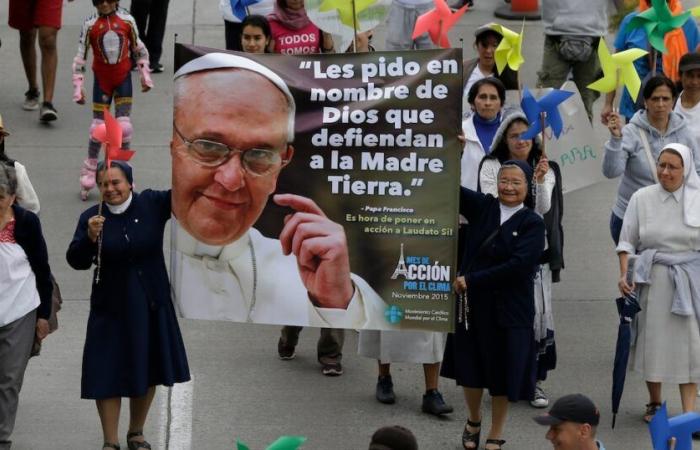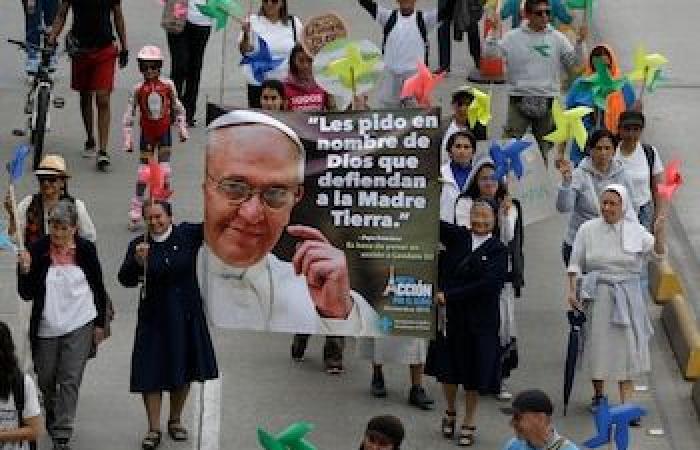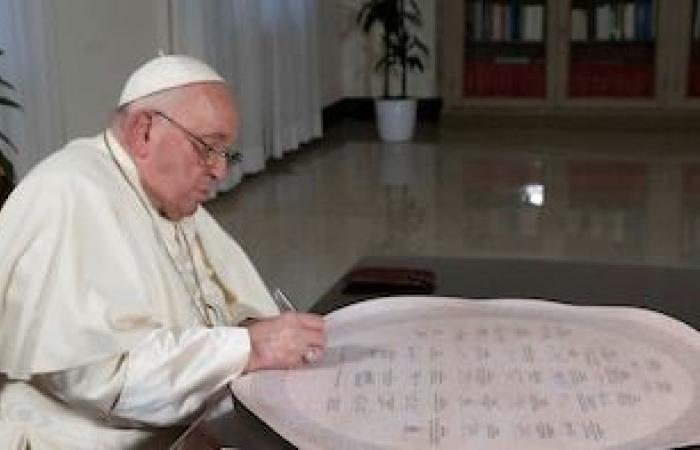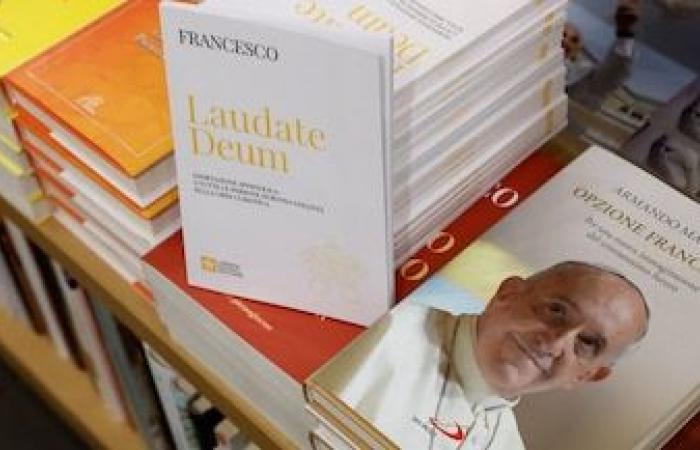The Vatican cardinal College will meet soon in Rome to choose the new head of the Catholic Church after the death of the Papa Francisco.
While the Church prepares for the papal conclave, the world is evaluating Francisco’s legacy and his position on the role of women in the church, LGBTQ+ rights and the needs of migrants and refugees.
However, Every evaluation should include a debate about laudate if ‘: On the care of the common house, its 2015 encyclical on climate change.
In many ways, it is an extraordinary document. At the same time rational and urgent, everyone calls us – “Every person who lives on this planet” – to think about what we are doing to the only planet we have.
Our common house, Francisco writes, “is like a sister with whom we share our life and a beautiful mother who opens her arms to hug.” And yet “We have come to consider their masters and gentlemen, with the right to loot it at will.”
The final result? A gallopant climate change in the form of an increase in temperatures, extreme weathering phenomena and loss of biodiversity. In this sense, reading Laudato if ‘ – “Alabado Seas” in Italian – is like reading an evaluation report of the Intergovernmental Group of Experts on Climate Change (IPCC).
However, unlike the IPCC report, Francisco does not go with Rodeos. “The Earth, our home”he wrote, “it begins to look more and more to an immense pile of filth.”

A few months after the publication of Laudato YES ‘, the world met in Paris to write a new treaty on the climate. It is also a notable document. However, if the authors of the Paris Agreement They could not mention the economic roots of the climatic crisis -they could not even use the term fossil fuels -the Pope could and did.
Francisco relentlessly called attention to our “growth models that have proven to be unable to guarantee respect for the environment”, our “irrational trust in human progress and abilities” and our “blind trust in technical solutions.”
He criticized the “current models of production and consumption” and our faith in “the invisible forces of the market”, as well as our “wrong anthropocentrism” and our “culture of using and throwing.”
Francisco pointed out obstructionism and denial. He was concerned about the rise of social networks, which has led to the disconnection of one another and with nature. And criticized “The idea of infinite or unlimited growth.”
Although terribly “attractive to economists, financial and technology experts,” is a fantasy based on lies “that there is an infinite supply of land goods.” There is no, and the planet “is being squeezed until exhaustion beyond any limit.”
Using Comillas ironic, he even criticized the “green” rhetoric, so fashionable in eco -capitalist circles.
It was not the first time that Francisco talked about a global economy that does not work. A few years before, in 2012, it caused a small stir in some circles with the publication of Evaniel joy. Wealth moves up, not down, argued, while the poor are excluded and grow in number.
The late American expert Rush Limbaugh He described him as “pure Marxism.” Without flinching, Francisco went further in Laudato if ‘when he linked the climatic crisis to an economy based on constant consumption.
Former Florida Jeb Bush governor, Catholic convert and then aspiring presidency, told him to be dedicated to weaving: “Economic policy does not give me my bishops, neither my cardinal, nor my pope.”
Of course, Francisco had adhered to his work in an important way: on at least four different occasions in Laudato if, “said abortion – or in his words,” the elimination of children ” – as part of the climatic problem. Wrote:
“To think that we enjoy absolute power over our own bodies becomes, often subtly, to think that we enjoy absolute power over creation.”
No, it is not so. In addition, empowering women through access to birth control and abortion attention is part of the solution to poverty both in the global south and in the global north, something that Francisco worried deeply, such as his Tocayo San Francisco de Asís.
In 2023, Francisco published Laudate Deum, a brief continuation of Laudato SI ‘. At the same time that he urged the world to act, he condemned those who blame climate change to the poor for having so many children who “try to solve the problem mutilating women in less developed countries.”
According to a Catholic news and information site, it was an apparent reference “to campaigns in favor of contraception and abortion carried out regularly by the West.”
Centuries of absolutism in the Catholic Church meant that Francisco could not establish the connection between the lack of body autonomy of women and poverty, and between reproductive justice and climate justice and, in part, the idea that climate change disproportionately affects women.
Even so, Laudato if ‘invites us all to connect the points between growth, consumption, poverty and climate collapse. It is not necessary to be a Catholic, not even religious, to read the encyclical of Pope Francis about climate change such as what it is: a powerful and deeply moral reminder that the climate is not something separate from us.
Citing Francisco, it is a “common good” that belongs to us all.
Article originally published in The Conversation









